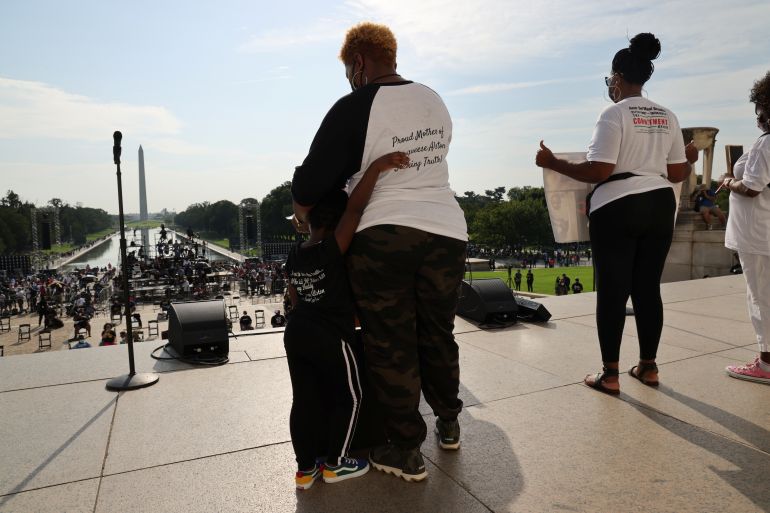Why US activists say police reform fails
Examining the big questions at the heart of the ongoing protest movement in the US.

By some estimates, 2020 has seen the largest protest movement in US history, with demonstrations all over the country condemning the killings of Black people by police and demanding change. At the center of it all are the many cases that had gone largely unnoticed.
Keep reading
list of 4 itemsFormer US police officer sentenced in killing of Black man Elijah McClain
US paramedics found guilty in 2019 death of Black man Elijah McClain
Angela Davis: ‘Palestine is a moral litmus test for the world’
Al Jazeera’s award-winning documentary show Faultlines and The Take’s Malika Bilal got in touch with one woman whose son, Marqueese Alston, was killed by Washington, D.C. police in 2018. Activists say her fight for justice shows exactly why police reforms don’t work — and why abolition would.
In this episode of The Take:
Kavitha Chekuru (@KaviChek), a senior producer on Al Jazeera’s award-winning documentary show Faultlines; Alex Vitale (@avitale), author of The End of Policing.
You can watch the Fault Lines documentary on Marqueese Alston’s killing and the ongoing protest movement at aje.io/PoliceProtests.
Connect with The Take:
Twitter (@ajthetake), Instagram (@ajthetake) and Facebook (@TheTakePod).